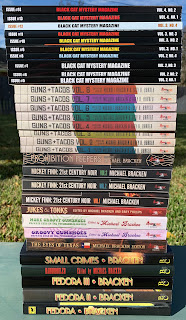There is, somewhere (according to soap operas and some mysteries), a store or service which will make available, at any hour of the day or night, a dead body that you can use to fake your own / someone else's death. I am assuming they deliver, because no one ever has to go get it themselves. Still trying to figure out how they get it into the hospital / crime scene without being spotted. Aliens?
I'm also still trying to figure out what plastic surgeon can not only make you look EXACTLY like someone else but change your voice, body movements, and speech patterns to match. For that matter, who the hell replaced Silva's mouth / throat / esophagus, etc., with a removable implant in Skyfall? I think a lot of people with esophageal and other oral cancers would love to know that that was possible.
BTW, if you want it, you can own the world's largest pheasant for $180,000. Or make them an offer. (HERE) Includes retail space, and a bathroom in the basement.
Speaking of giants, the family of the South Dakota couple who earned millions from the sale of Sue the T-Rex is suing each other. In 1997, Maurice and Darlene Williams made $7.6 million from the auction of Sue, who is still on display at Chicago’s Field Museum. (At 47 feet long, Sue is among the largest and best-preserved T-Rex skeletons ever discovered.) Apparently, there are two wills, one made in 2017, dividing the estate equally, and another made two weeks before Darlene's death, when she was in hospice, leaving everything to only one of the daughters. And that, my dears, will always launch a lawsuit... (LINK)
The Sioux Falls Catholic Diocese sent out a retweet from a Nashville priest and exorcist that Taylor Swift is summoning demons at her concerts. (LINK) I think they're just jealous that she gets into football games for free. Meanwhile, I think I can hear the beginning of a story in all of this...
Janice Law wrote a great piece a couple of days ago (We Keep The Dead Close) about closed systems, like Harvard or small towns, and how difficult it can be to find out who did something when a chosen culprit has been decided on. Or when it's been decided (silently but collectively) to just ignore something. I know from living in a small town for three decades that that is absolutely true. Think about "To Kill A Mockingbird" - there's morphine addict Mrs. Dubose, whose addiction is politely ignored by everyone in town, thanks to her status. There's Boo Radley, whose father is considered "one of the meanest men that ever drew breath" - but no one ever rescues Boo from him. Nor, for that matter, do they rescue Mayella Ewell from her father, who not only beats the crap out of her but (it is strongly hinted) sexually abuses her as well.
It's amazing how many people who have NOT heard the story about Peter Antonacci, the DeSantis-appointed head of Governor DeSantis's Federal Election Fraud Office. He died. Suddenly:He collapsed and died in a hallway in the governor’s office moments after “abruptly” leaving a contentious meeting on Sept. 23, 2022. That Antonacci, 74, was stricken in the governor’s office was kept secret at the time. Instead, authorities only said he died while at work in the Capitol building, of which the governor’s office is a part. Florida Department of Law Enforcement records released to Florida Bulldog also say Antonacci lay dead or dying on the hallway floor of the governor’s office for more than 20 minutes before anyone apparently noticed and came to his aid. More precisely, 24 minutes, in a hallway under real time video-only surveillance.
While the FDLE reports include such mundane observations as how Antonacci was dressed – “a sky blue shirt, dark blue dress coat, and gray dress pants” – they stand out for what’s missing: the identities of everyone attending the meeting and any inquiry as to why Antonacci lay undiscovered on the hallway floor for so long. (LINK)
Also, the medical examiner wasn't called; no autopsy was carried out; and the Chief of Staff at the meeting "retired" abruptly. Oh, and "no comment" on all of this from the Governor and staff. So why isn't there more reporting on this nationally?
Finally, linking back to my last SleuthSayers blog post, "What's the Problem With Young Men?", Lyz at "Men Yell at Me" has pointed out yet another column saying that women are too damn picky about who they marry, and the latest twist – from WaPo of all places – is not only that they should marry "down", i.e., to men who make less money or are less successful than they, but (since more young women are liberal than young men) they should marry conservative men who are otherwise going to have to live off porn and Skittles, and that's not just fair. (HERE).
Really? From Axios, the tender tale of the "Students for Trump" founder who assaulted his girlfriend, "grabbing her right arm and striking her in the forehead" with a handgun. Thankfully, he was charged with domestic assault on a female and assault with a deadly weapon. (Axios)




























